You can enable subtitles (captions) in the video player
Never work with children and journalists.
No. Yes, it is! OK, it’s Sketchy Politics. We are delighted to be back. And we’re looking at Labour pains.
OK, it’s a Labour government approaching the defining moment that is Rachel Reeves’ first Budget. There have been a few teething troubles. We haven’t actually caught up since the election, their incredible landslide victory.
Yes, there’s been more bumps than road, actually.
Yeah, a bit of a shaky start despite that incredible dominance of the House of Commons.
Yeah.
Let’s shove the Tories over there.
Yes.
We’ll come to you.
That’s about the amount of space they occupy in the Commons now. The decision to delay the Budget as long as it has been has blocked a lot of things that Labour ministers would like to do, because they just don’t know what money they’ve got available to them. And it’s clearly slowing the message progress of how we’re getting on in reforming Britain. And so the only ministers who’ve been able to make real progress are those with non-spending commitments, so those who’d really put the thought into what they were doing, like Ed Miliband in Environment or Louise Haigh at Transport. And so there’s been that.
Louise Haigh, she of the incredible hair.
Yes. And then they just clearly weren’t quite as ready as they thought they were or hoped to be. And things were moving very, very slowly at the centre of Downing Street. A lot of the blame was placed on the great Sue Gray.
Oh, here we go. Here we go.
The great Sue Grey, who has now been replaced by Morgan McSweeney. But things were just moving much too slowly. And I think on top of all of those things, Keir Starmer is just not a natural storyteller as a politician. He has a disdain for a lot of the sort of flummery and nonsense of politics.
Yes.
And he really is not interested in any of it.
He’s a little, tiny bit snotty about politics actually.
I think he really is.
You know, that’s fair.
At one level, I sort of respect it because really important things need to be grasped and fussing over the ‘come today, gone tomorrow’ issues is not right. But on the other hand, you do actually have to pay attention. A lot of the mistakes, the issues that Labour has had, particularly obviously around free gifts and suits, are partly a function of not being serious enough about that minutia of politics. Don’t you think?
Yeah, I do think. I do. I think you have to do the politics. You have to actually get down and dirty, and think about your tactics and strategy, and how you’re going to dominate the agenda.
And how it’ll play in the media.
Absolutely. So this is my attempt at a headless chicken or is it a chicken with, in fact…
A three-headed.
…a three-headed chicken. A three-headed chicken.
They’re all on the Gates of Hades.
Yes. It’s a Cerberus chicken. And it felt a bit as if Number 10, therefore, didn’t know which direction the…
I mean, there was…
…government chicken was running, right?
…a quite disgraceful briefing against her. That was the thing that really did surprise me. Straight off the bat, there were people who were much more loyal to Morgan McSweeney, Starmer’s campaign chief and political strategist, who just went for Sue Gray from day one.
Blaming her for Freebiegate and all the free suits, yeah.
And there are things where I think she had a case to answer. Appointments were much too slow. Things were taking too long. And for reasons I’ve never understood, she was in charge of the communications grid, which doesn’t seem to be something that should rest with her.
I’m just going to put some very expensive spectacles on the prime minister.
Oh, very good, yes.
Donated by Lord Alli.
But they went for her very early. And you just thought it was really self-indulgent for a brand new government to be doing this. But the donations, the free suits, the freebies, it really doesn’t help Keir Starmer, who’s not especially popular anyway.
So I’m going to eject…
She’s gone.
…Sue Gray in the dignified manner that Downing Street ejected her.
Yes.
You’re gone, lady.
Off to the regents.
Sorry. So that leaves Starmer and his now all-powerful political brain, Morgan McSweeney.
And Rachel Reeves.
And Rachel Reeves. Credited with the amazing majority and landslide, but also not someone who’s run anything in government. So that’s a challenge there. And you’ve got this incredibly powerful figure at the Treasury, Rachel Reeves. Those are the two poles.
Obviously, the other two people of importance at the top of the party are Angela Rayner, deputy leader, but I think is not a central figure as those, and Pat McFadden who runs the Cabinet Office, but is absolutely of a piece with these people. I mean, the one good thing is that actually Starmer and Reeves are running in lockstep. That carries promise.
So it’s a…
Yeah, a new third. Yes.
The chicken’s still got three heads, people. It’s all fine.
But it’s the same head, really. That’s a good thing, in one respect, because there’s clarity at the top. The danger is you do sort of want the prime minister to be able to step back, and adjudicate, and say, particularly to their chancellor, look, the money argument you’re making is absolutely right, but we just have to do this or we have to do that, particularly on issues like, for example, defence.
So I think the issue that worries some people in the Labour party now is that actually it’s going to be run by the Treasury. It’s basically been annexed by the Treasury. And that’s the challenge, I think, as it moves along, particularly at a time when money is tight. And the Treasury decisions always veer towards finding more money or not spending money, as we saw.
What do you think this is?
I think it’s a Treasury brain.
Yes, it is!
Yes.
Well, the Treasury brain is known as the thing which actually holds back the proper functioning or proper forward-thinking strategic government in this country. Do you think that’s fair? i.e. looking at everything in terms of a spend-save spreadsheet and not realising that the process of government should sometimes be more generous where you need to build for the future.
I think there’s an element of fairness in it. The criticism is always that what the Treasury is bad at is accepting an argument that if you spend today, you’ll get savings down the line. So if you want to improve your health service and make it more efficient, spend now on primary care so that fewer people get ill. And the Treasury is very bad at making those costings and saying, that’s true. And I think that’s a fair criticism of the Treasury.
It was also, as we remember from the last government, criticised for always favouring investment schemes in London and the South East, because they delivered the most bang for your buck and, therefore, not helping the rest of the country. The inverse of that is it is the one department that says we can’t afford this. And someone has to.
It’s often whacked by everyone for blocking things that they would like to do but can’t be afforded. So it’s a balance. But I do think it’s a worry, particularly if people in the Labour party, that Treasury brain is too powerful at the moment.
And it does, we know from previous chancellors, let’s face it, that often when a budget gets OK headlines on the day and then the next two days it starts to unravel, that can be because Treasury brain has said, ooh, let’s save a bit here, let’s save a bit there, and you succeed in massively alienating powerful groups of voters, all those with whom the public has sympathy. And so I’m now going to attempt…
Liz Truss managed to have a budget that went disastrously without the Treasury brain.
Well, also united the nation by alienating absolutely everyone. So I’m going to try for a second time, I think. I believe it is on Sketchy Politics to draw a kind of, look out the elderly, because surely one of the most difficult things that’s happened so far for the government is that they have means tested the winter fuel allowance for pensioners.
So there is polling on this now, as to what people are really annoyed with the new government about. And that comes absolutely number 1. Why have you decided to make the poor elderly cold over the winter? And also, what’s the impact of that potentially on the NHS if there’s a winter crisis? So was this avoidable and was this actually part of this Treasury brain thing?
Was it avoidable? Clearly, they didn’t have to make that choice. They could have made a different choice. It was quite a shrewd piece of financial politics from Rachel Reeves, because fundamentally she wants to spend lots more money. She wants to borrow more money.
She wants to borrow to invest.
She really wants to push her fiscal rules as far as she can. And I think the one thing that that measure did, step aside from the politics of it a minute, is say to the markets, listen, don’t worry, we as a government will do the horrible things if we have to rather than jeopardise our financial security or allow a run on the pound or anything like that.
So I think in that respect, it was probably very important. It’s not going to save very much money. And we’re talking about something that saves at its top end £1.5bn, which is a small amount of money, isn’t it?
Well, also, once you’ve actually had it pointed out to you, as everybody did, you cannot possibly allow it to only go to the people who’d be eligible under your new scheme. Then you have to chase all the people who should be actually in line for the benefit. You’re going to save a whole lot less than you even thought you were going to. I mean, is it worth the political pain when people are really… the unions are cross with them about it? Pensioners do turn out to vote.
I have more sympathy for the case for means testing than some people do. I think that payments shouldn’t go to people who don’t need them. They’re taking it from other taxpayers’. But the question is whether this is just too low down the income scale and whether they should have done more for people who had a bit more money, but not that much.
I think that’s an absolute straw man argument, if you don’t mind me saying so, because I don’t know anyone who doesn’t think it should be means tested. It’s a question of how you do it and who you hurt. And that’s why people are angry.
That’s the whole point about means testing. Means testing, you’re always going to hurt someone. There’s always going to be people on the wrong side of the line.
Yeah, but you do it through the benefit system, you’re creating a terrible cliff edge.
Governments for quite a long time have been hurling out bungs to pensioners because they’re reliable.
Some pensioners.
ROBERT SHRIMSLEY: The Triple Lock is all pensioners.
Only one in four pensioners gets the one that’s going up dramatically, which they never mention.
But the Triple Lock is a fundamental part of it. But the point is…
Could you live on £12,000 a year?
I don’t know. Probably not. But that’s not my point. My point is it’s been cynical. It’s not been about the good of the elderly. It’s been about these people vote. And they have let down other parts of the country at the same time.
So here’s what we think she might do in the Budget is make the fiscal rules. I don’t know how to do this visually, Robert. You might have to help me.
Look, so here’s Jeremy Hunt, who set a five-year horizon, as they call it in the jargon, for the fiscal rules. It said that she might change the five to a longer timescale, maybe even 10, or make the fiscal rules a bit bendy. I’m going try and draw a bendy rule.
A bendy rule. OK I mean, it should be reminded that even Jeremy Hunt’s numbers, I think, were described by the Office of Budget Responsibility as hard to caricature, even as a work of fiction.
Right.
I mean, they really didn’t work. They were absolutely the numbers of someone who knew they would not have to be held accountable for them in a few years time.
The cynicism.
What we both think she’s going to do, isn’t it, is change the definitions of debt so that she has more room to play with and that, therefore, can borrow more. And I think that’s probably a good idea.
And there are obviously departments who would like that to happen, right? Particularly the infrastructure departments.
As long as the borrowing is for real investment and capital spending rather than just to keep the ordinary things ticking over.
I should probably do it in red, shouldn’t I? Do you think there’s a danger of looking too Labour for those who are worried about it?
Too Labour.
Because she’s got to manage the expectations of the financial markets, particularly with the Truss mini-budget in recent memory.
There are two risks, aren’t there, in that approach. The first is that she overdoes it and gets an adverse market reaction. I think she’ll be very, very careful not to do that. I think that’s at the centre of her thinking.
The danger, I think, is that in trying to make the current account numbers add up, she’s going to come up with a number of tax measures, all of which are sort of a bit invisible to most ordinary people. They don’t affect their pay packets immediately. Taxes on business, taxes on pensions savings, that kind of thing.
All of those kinds of things which have an effect further down the line, and are damaging to the economy, and put off businesses, and stop businesses doing things. So I think that’s the real risk of being too Labour. But she is alive to that.
It’s a horrible balancing act she’s got to do. She has far more calls on money than she has money. And the only ways are to borrow or invest until you get better growth. And the borrowing is only going to be for capital investment.
So here’s a question. Do you think because of this really genuinely very difficult inheritance that they’ve got in terms of the economy and the public finances, do you think it’s fair when people say that they really overdid the gloom? You and I were both there at the Labour Party Conference in Liverpool, which was indeed very, very, very wet and rainy.
It was quite a glum affair. And there was this idea that they’re encouraging everyone to come and invest in the UK, a newly stable government. We want your money to build the economy of the future. But actually, all of the kind of mood music was really, really dire.
I totally get the politics, which was we’re going to spend the first few months reminding voters that it’s all the fault of the Conservatives. And that some things which are going to be a bit rough for a couple of years, at least, are the fault of the Conservatives. All their fault, all their fault, so things are really bad. And I totally get the politics of that.
On the other hand, the voters knew that because that’s why we got the election result we did. So I think it was overdone. I also think generally voters have a fairly limited patience for being told things are bad and that it’s the previous government’s fault. Their general view is, yeah, things are bad.
What are you going to do about it?
We put you in power, now deal with it. Don’t keep telling us how awful it is.
So can we expect more of the kind of terrible kind of stuck-on cheer that we had? Because when Rachel Reeves came to give her speech at the conference…
It was a really forced grin, yeah.
It was sort of like, yeah, a forced grin. And Keir Starmer at PMQs seems to be trying to lighten the mood ever so slightly, but that doesn’t come naturally to him. He’s not Mr Optimism.
I think the right tone for them is a sort of pack up your troubles. You’ve got to keep on down to the end of the road. We’re making the start.
It’s not going to be easy straightaway, but we’re on our way now. We’ve made a journey. And you’ll start to see the results. It won’t be immediate, but you’ll look back at today and say, we got back on track.
That’s got to be the approach. You don’t want to overdo the good cheer, because it’s not going to be a cheery budget. And people aren’t going to feel better the day after. But you’ve got to somehow convey this message that we are grasping the nettle.
And no sunlit uplands any time soon. Now we had to put Kamala Harris and Donald Trump on here, because obviously one of the massive known-unknowns is what kind of a democratic world are they actually going to be governing in? Because after the Budget quickly comes the American election, our most important alliance, particularly now that we’re out of Europe. But, of course, there’s another incredibly important election going on, Robert, isn’t there, closer to home? One with possibly even more import to the…
One, I think that overshadows the American election for the rest of the western world.
We turn the page.
The one point beyond, obviously, the fact that this is a monumentally important election and we don’t know how it’s going yet, is that actually governments, particularly governments with not much money to splash around, are really at the mercy of events totally beyond their control.
Yes, quite.
This is a government that’s got a war in Ukraine. There’s a war in the Middle East. Who knows what’s going to happen in the US election. There are so many ways in which they can suddenly find everything they’re trying to do completely derailed by events over which they have almost no say.
So basically, we’re saying that this American rain cloud could totally dwarf the tiny little rain clouds that we have domestically if it goes the wrong way.
Although, I still think the two conflicts are probably more immediately dangerous to the government. Ukraine and what’s going on in Israel and Gaza.
Ukraine and the Middle East.
Yeah, I think those have the potential to be much more dangerous to the world economy.
OK, right, let’s move on to the subject that’s on everyone’s lips, right?
Yeah.
The Conservative party leadership election.
So these are the final two.
The final two, but lately departed in a sort of weird plot twist at the final hurdle, well, the penultimate hurdle, both the moderates removed from the scene. Goodbye, James Cleverly, former foreign secretary and home secretary. Goodbye Tom Tugendhat, former security and prisons minister. Very much a voice of moderate, sort of blue-wally.
That he was trying not to be in the election.
Yeah. But yeah, yeah, yeah. Do you not think that was some of the problem that the way that a moderate centre-right Tory now has to pitch themselves to the Conservative membership makes it almost impossible for you to believe what they’re saying?
I think it was a problem for Tom Tugendhat, although I never thought he was going to make it anyway. James Cleverly came agonisingly close from his point of view and quite possibly just messed up the ballot in the final round before it went to members. He clearly won over a section of the membership. And he might have been quite a potent candidate in the ballot of Tory activists who will choose between the final two. Anyway, didn’t make it.
All right, gone. Gone, gone.
So the Tory party’s veering right again, which I think we’d have predicted before that after a heavy defeat, parties tend to go back into their base.
It’s sort of a comfort zone mentality slightly. But also maybe it’s not that daft in the sense that if you’ve had a really catastrophic defeat. I mean, the last time we were having a chat about all of this, we were thinking that it was a near extinction level event, the July 4th election for the Tory party. So actually, if you’ve got to rebuild from a defeat.
It was only a catastrophe.
That’s right, just a catastrophe. The Torysaurus, as we dubbed it, was not made extinct.
These people, Nigel Farage’s Reform party, are weighing disproportionately on the minds of the Conservatives, particularly Robert Jenrick, who’s out and out pitch is to steal Reform’s clothes, fundamentally. We’re going to take their clothes. And it’s a difficult one for the Tories because…
Where’s Farage? Look, Farage. Everything is just delighting him. Here he is, laughing away.
On the one hand, they do have to get back some of those voters. But on the other hand, they lost as many voters to these three parties as they did to Reform and particularly to the Liberal Democrats, especially important. If they overdo the tilt to Reform, they will undermine desperately their chances of winning back the voters to their left. And so it’s very tricky.
This is incredibly important, isn’t it? The sheer maths of what happened in July. I mean, they even lost two seats to the Green party, right? Which is extraordinary due to the level of disgust amongst most of the electorate.
People voted for whoever they could vote for to get rid of them.
Absolutely they reached for whatever weapon was to hand. But there was something particular going on with the exodus to Reform. But this is broadly equal, what happened to these two wings. But Jenrick is pitching it as if they only have to solve this problem, right?
Yes. I went to a very interesting fringe meeting at the Conservative Party Conference where the pollster Luke Tryl was talking about these issues. And one of the points he made, I thought very convincingly, was that it’s as much about the phasing of how you win back voters as it is how you get them back. And his argument was, actually the Reform voters that you can win back, and half of them will never go to the Tories. But the ones that you can win back, you win them back last. That actually, it’s more important to win back Liberal Democrat voters first, and Labour voters first, and the Greens, as you said, a couple of constituencies only.
Win back the centre ground first. And then because you look credible and serious again, you can win back the Reform voters that you’re capable of winning. And I thought that was a very convincing argument. He says, you can’t ignore those people, but you don’t go for them first, because if you go for them first, these are the people that will shut their ears to you. And I think that’s the danger that the Conservative party is running into. The only thing that we have to allow for, particularly with Robert Jenrick, who has occupied a number of positions on the Conservative ideological spectrum, is…
That is a very polite way to put the weaving across the spectrum that he has done. He was a moderate Cameroonian during the coalition years, then became extreme.
He has returned to the prodigal tent. The question is whether they’re just playing to the gallery they have to play to to win. Kemi Badenoch, I don’t think, has ever been accused of playing to a gallery. I mean, she really believes the stuff she’s talking about.
She just happens to agree with the gallery, you’re saying?
Exactly.
My map is lacking because, to be honest with you, I have not got a yellow for the Lib Dems. But what I’m just trying to do here is the fact that it’s kind of geographically a mish-mash now as to where the Tory party lost seats. To The Lib Dems in the South. I’m just going to have to put the bird across the South and South West and South East. The Labour Party in the Midlands, these two Green seats.
They lost to everyone. They did retain a presence in both Scotland and Wales. So it wasn’t quite that weird 1997 wipeout in the other two nations. We got a special, special treat for you, Robert, because you wrote a wonderful column about how Kemi Badenoch, it’s been said of her, she could start a fight in an empty room because she’s that combative.
You said that she was on a search for dragons to slay. Dragons are too hard for me to draw under the pressure of Sketchy Politics. So here is one I prepared earlier. Here’s a little dragon.
You’re the Mother of Dragons, it’s official.
I’m the Mother of Dragons. And all of the dragons, I’ve tried to do my dragons sort of rolling its eyes a bit.
It’s very good. I like it.
Because she’s trying to sort of take on and find enemies, right?
Yes.
Is that the way to fight modern politics? Just as a final thought.
Well, there’s an element of it. In general, oppositions have to find a story to tell the country. There is a dragon that needs to be slayed and we are going to slay it.
You think back to Margaret Thatcher slaying the trade unions. That’s always the strategy. The problem for the Conservatives is that at the last election the dragon was the Conservatives as what people wanted to get rid of. So what they have to find is a new argument.
And hers is about the bureaucratic and overregulated state. I have my doubts about it. I think it’s interesting up to a point. But it’s also everybody who works in HR, and every lawyer, and them making more enemies.
She’s picking off all of us, group by group.
The one thing that Keir Starmer has going for him at the moment, he’s been quite a lucky general in his career so far, is that the opposition does not at the moment look like an opposition that should worry him too much while he’s making the mistakes he’s making.
And so few in numbers.
Things change.
But so few in numbers. So I think, are we saying that if the Tory Party was to go for Kemi Badenoch, very young, very untried, argumentative, gets a lot of attention, but has a tendency to make enemies as much as she does to attract people…
Use the attention wisely.
…might be playing the joker.
I think that’s exactly right. They’re playing the joker with Kemi. As someone put it to me, high risk, high reward, mainly high risk.
Oh, god.


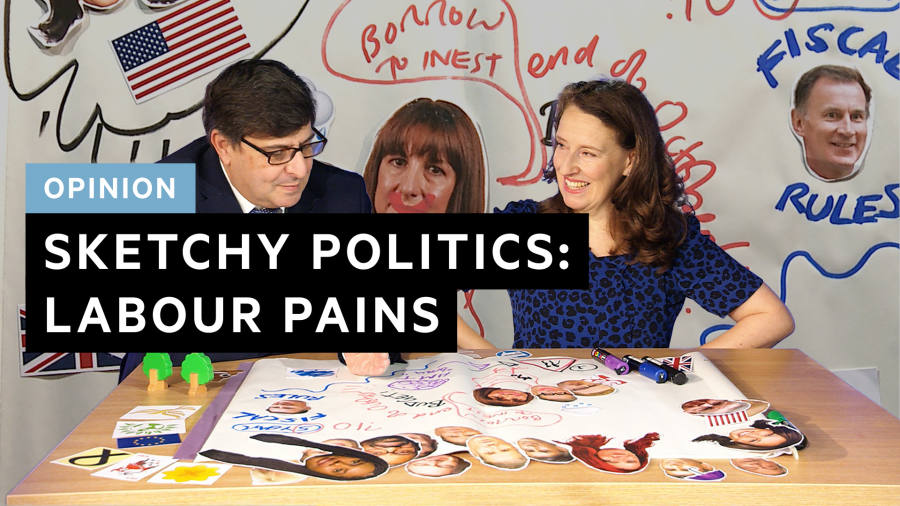


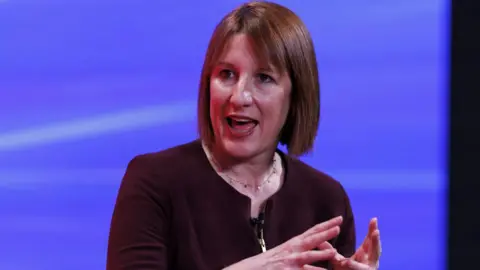
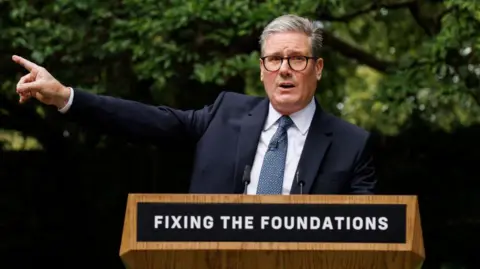
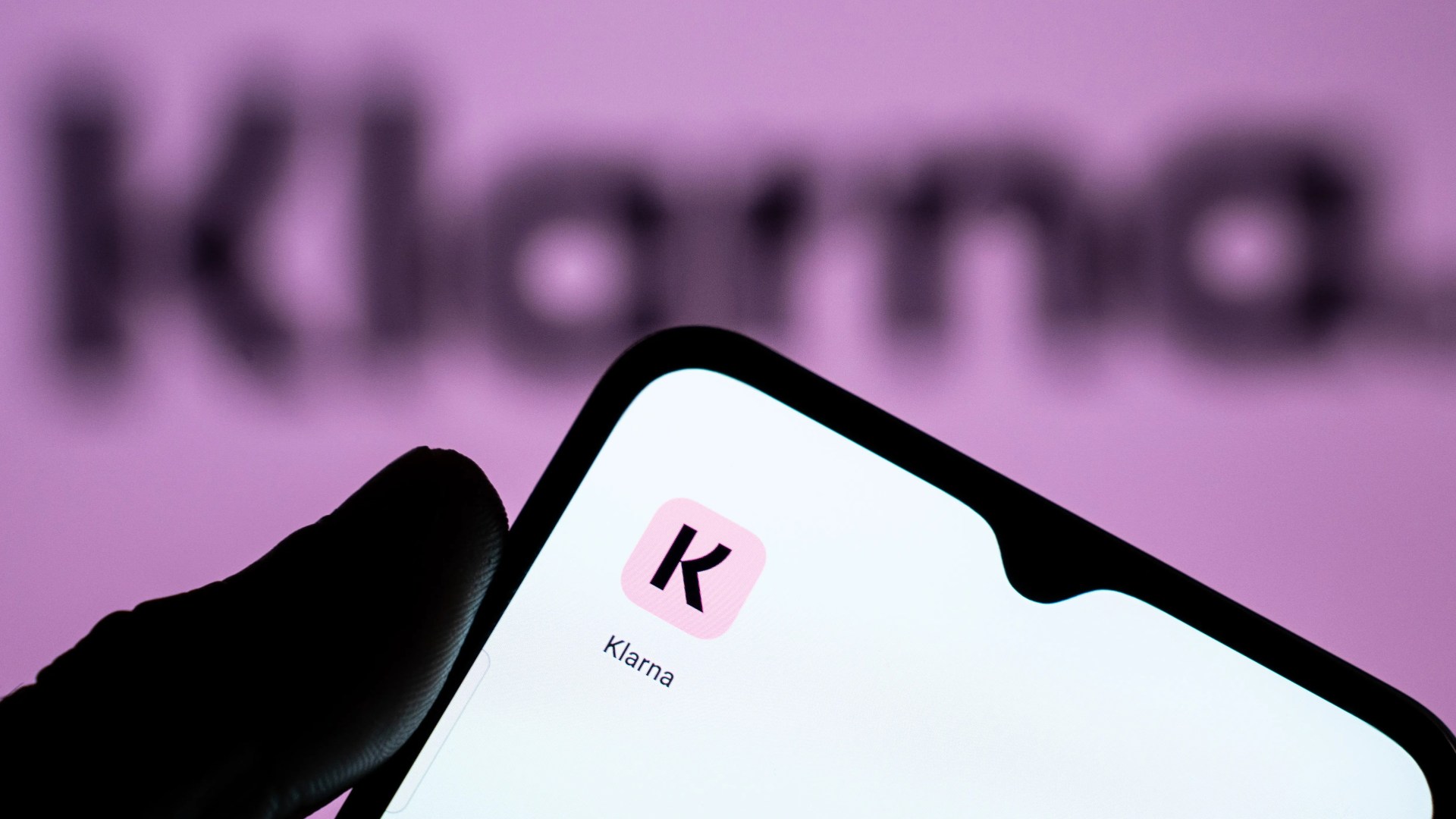





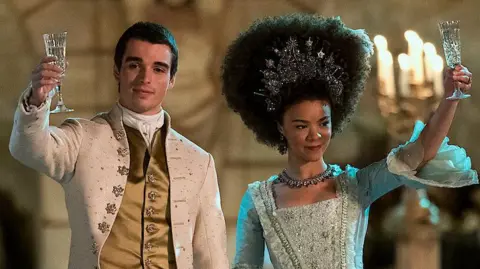
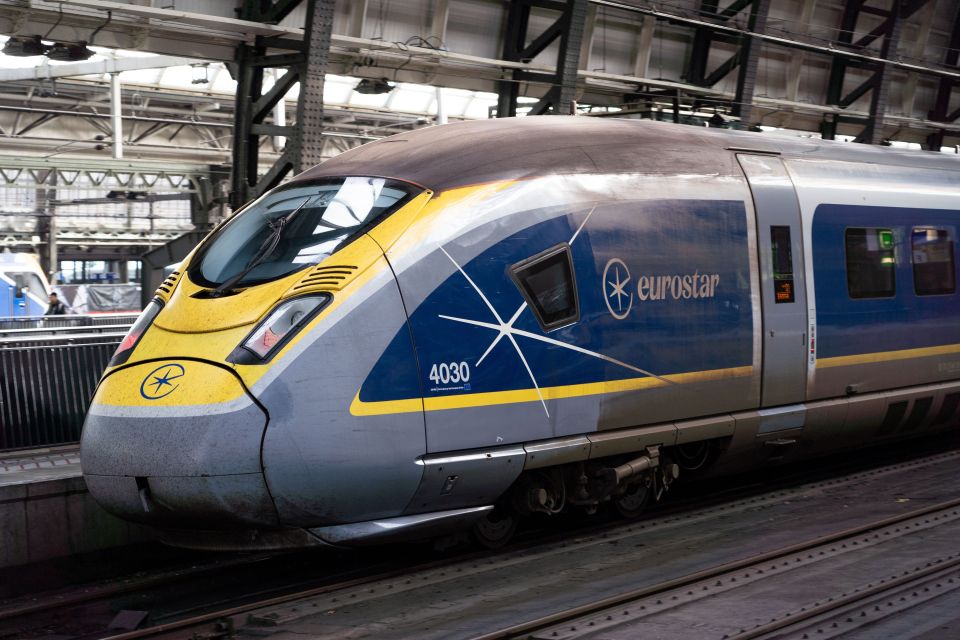





































































































































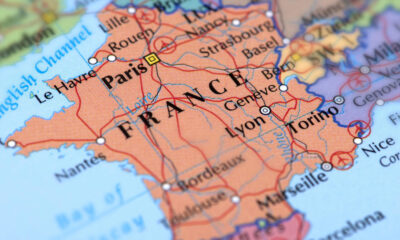



You must be logged in to post a comment Login